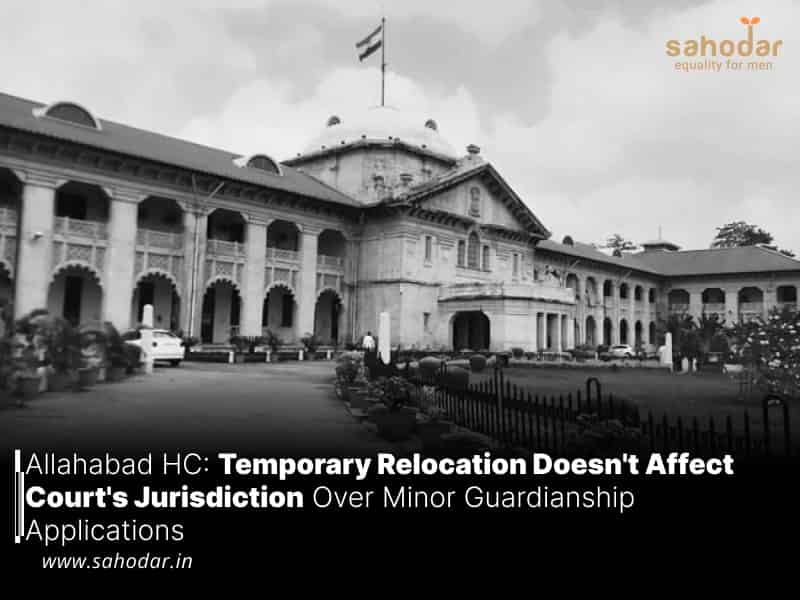The Allahabad High Court noted that the ordinary place of residence of a minor is what determines the jurisdiction of a court for guardianship applications, and this jurisdiction is not affected by the minor’s temporary residence elsewhere on the petition’s submission date.
The Bench clarified that Section 9 (1) of the Guardians and Wards Act, 1890, specifies that if a minor is residing at a different location when a guardianship application is filed, this temporary location does not establish the family court’s jurisdiction.
A Division Bench of Justice Vivek Kumar Birla and Justice Syed Qamar Hasan Rizvi observed, “Thus, a bare perusal of section 9 (1) of the Guardians and Wards Act, 1890 makes it apparent that it is the ordinary place of residence of minor which determines the jurisdiction of the Court for entertaining an application for guardianship of the minor. Such jurisdiction cannot be taken away by temporary residence elsewhere on the date of presentation of the petition. The fact that the minor is found actually residing at the place when the application for the guardianship of the minor is made does not determine the jurisdiction of the Court.”
Advocate Satyendra Narayan Singh represented the petitioner.
The Court dismissed an appeal by the minor’s father, who contested the Family Court’s jurisdiction in a child custody case initiated by his wife. The appeal aimed to challenge the Family Court’s decision to deny the father’s application for dismissal based on jurisdictional grounds.
“The purpose of using the expressions “where the minor ordinarily resides” is perhaps to avoid the mischief that minor may be forcibly removed to a distant place, but still the application for minor’s custody could be filed within the jurisdiction of the Court from whose jurisdiction he had been removed or in other words where the minor would have continued to remain but for his removal,” the Bench stated.
The father contended that the Family Court lacked jurisdiction since their son was attending school elsewhere, placing him outside the territorial jurisdiction of the family court. Consequently, he submitted an application under Order VII Rule 11 of the Code of Civil Procedure, 1908, seeking the dismissal of the case.
However, the High Court upheld the Family Court’s interpretation of Section 9(1) of the Act, which stipulates that the application should be filed in the family court where the minor “ordinarily resides.” The Bench elucidated that determining “ordinary residence” necessitated a thorough examination of both factual and legal aspects, extending beyond the minor’s temporary or current place of residence.
“The residence by volition or by compulsion within the territorial jurisdiction of the Court cannot be treated as place of ordinary residence. The words “ordinarily resides” are not identical and cannot have the same meaning as residence at the time of filing of the application for grant of custody,” the Court remarked.
Accordingly, the High Court dismissed the appeal.

